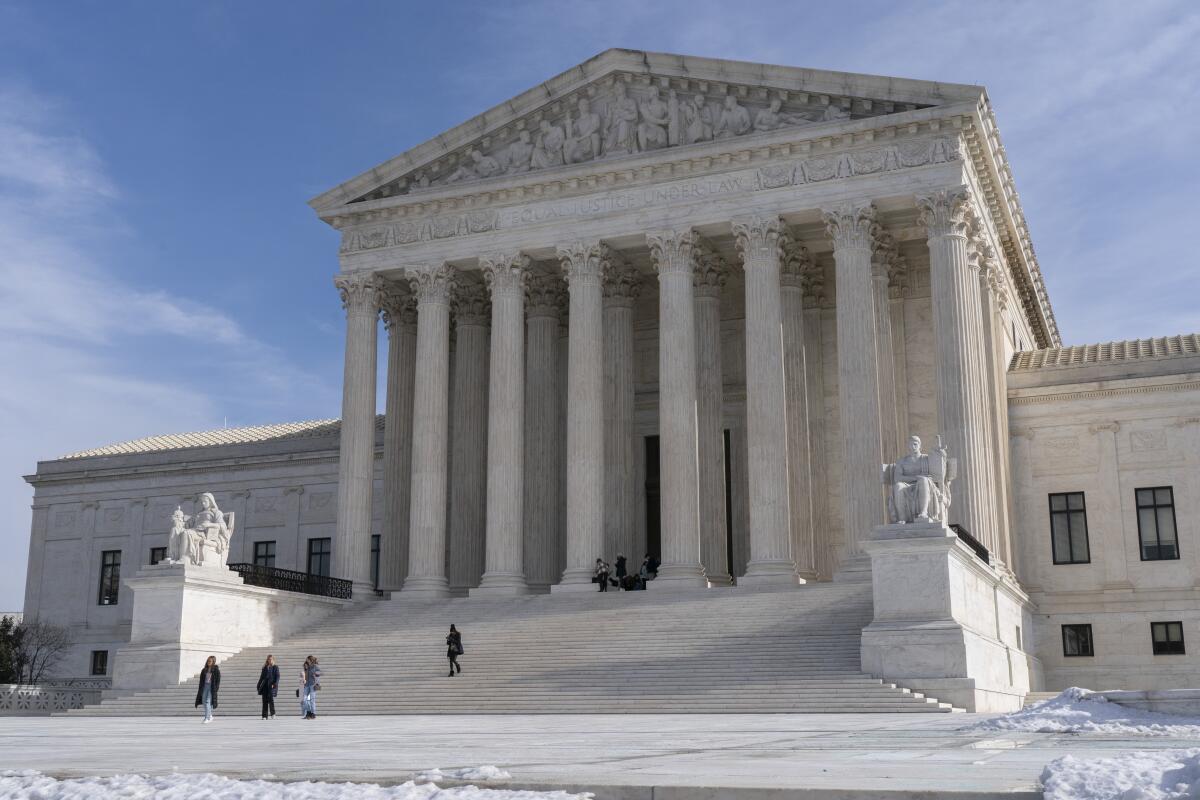Letters to the Editor: Law school grads, it isn’t all about the Supreme Court. Your communities need you

- Share via
To the editor: Like most law professors, Erwin Chemerinsky and Jeffrey Abramson think about civil rights from the top down, starting with the federal courts. From that perspective, we first try to protect civil rights at the U.S. Supreme Court. Next we try Congress. If that fails, we work more locally. (“What do we teach law students when we have no faith in the Supreme Court?” Opinion, Jan. 16)
But there is another way to think about civil rights: from the bottom up. I have spent my career doing exactly that, first as a lawyer, then as a law professor.
Chemerinsky and Abramson argue that when it comes to law students and civil rights, “there really are just two choices: Give up or fight harder.” They are right that we must teach law students to fight. But we must also teach them to build.
If law schools helped every city build and run an in-house civil law enforcement unit, it would send civil rights enforcement through the roof. What else could graduates do to build civil rights protections? Off the top of my head:
They could draft new charters (local constitutions) that contain civil rights protections and enforcement mechanisms. They could run for city council to expand local civil rights ordinances. They could create and build out local civil rights commissions and inspector general offices that supervise law enforcement. The list goes on.
The professors are right that we must teach our students to fight. But we must do more than that. We must also teach them to build.
Kathleen Morris, Oakland
The writer is a professor at Golden Gate University School of Law.
..
To the editor: Chemerinsky and Abramson, who have “lost faith” in the U.S. Supreme Court, tell students to keep up the good fight. OK, but what’s faith got to do with it?
Amid their handwringing about the present Court, the authors point out that, historically, there have been justices and decisions that have pleased them. The authors also lament that Court appointments have become highly partisan. Again, the authors point out that appointments and nominations have run the edge-to-edge spectrum of mainstream worldviews.
Well, welcome to the rough-and-tumble world of law and politics.
Litigators, as opposed to legal academicians, may better understand the ups and downs involved with representing clients before various judges in various types of cases.
Many of the authors’ students will be practicing in the hundreds of lower courts and not in the lofty confines of the “Marble Palace Nine.” In these legal trenches, it behooves litigators to know something about the judges before whom they appear so they can use the most persuasive arguments for their clients.
It’s simply part of the job.
Edward A. Voci, River Forest, Ill.
The writer is an instructor in the justice studies department at Northeastern Illinois University.
..
To the editor: Who is this “we” who have lost faith in the Supreme Court? Maybe you, but not me.
It is refreshing to see a semblance of common sense return to the Court. Do you want the Warren Court again?
George Gawlik, Van Nuys




